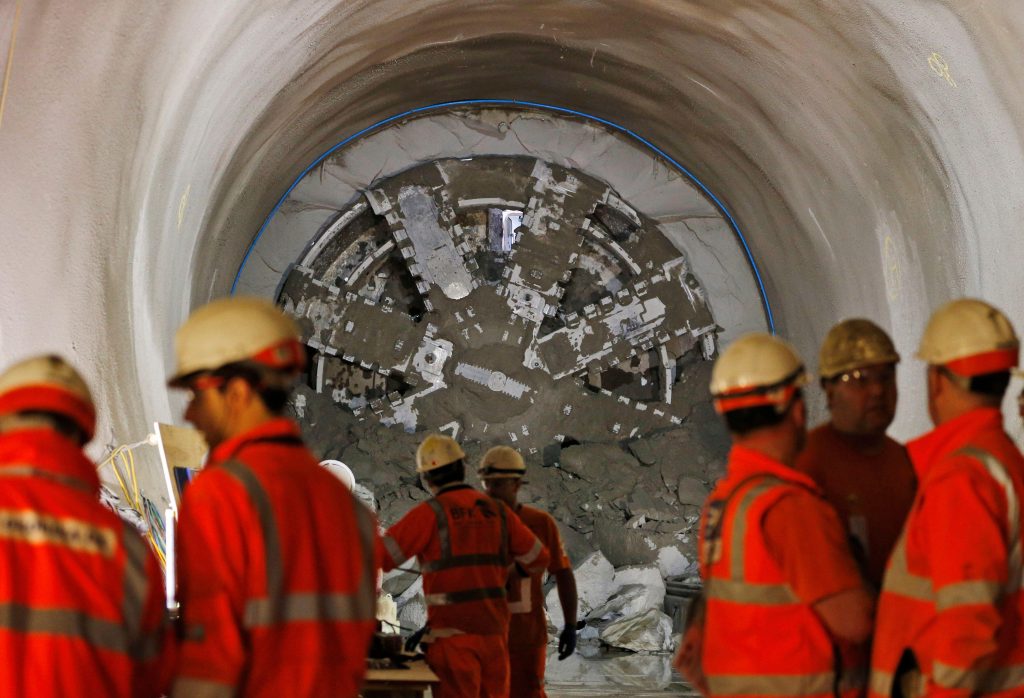What shapes tunnelling culture?

Associated Press
What makes tunnellers tick?
Tunnelling projects exercise a fascination for those who work in or around them and feel instinctively different from other areas of construction. New Safety Diagnostics analysis reveals the key characteristics that set tunnelling workforces apart from the rest of the civil engineering industry. The data provides insight into the behaviours and attitudes of tunnelling teams and how they diverge from industry norms .
The findings suggest that tunnelling teams are young, empowered and have high esteem. Leadership and line management is highly respected but tunnelling teams tend to self-regulate and supervisory ratios are lower than in other areas of construction.
While communication and engagement on tunnelling projects is highly rated, there can be a reluctance to speak up about issues and a culture of blame lingers. Tunnellers report higher levels of risk from stress and fatigue than other workers and are also less likely to raise this with line managers.
Safety Diagnostics has carried out research in the construction for more than twenty years. Using data from over 60,000 individual cases, tunnelling data was rigorously mined and compared with that from other construction activity. The results show the distinct elements and trends at play in the sphere of tunnelling and point to the key strengths of tunnelling teams and critical issues in need of attention.
Younger and more empowered
- The workforce is younger on average than other civils projects, with nearly half aged under 35 years.
- The supervisory ratio is lower than in other projects with less than 40% reporting supervisory responsibility.
- Tunnelling workers are more likely to report making positive interventions in the workplace with underground crews exercising a high degree of self-regulation.
High esteem
Esteem factors are associated with positive, motivated and empowered behaviour. Tunnelling workforces display higher esteem than other civil engineering projects. Tunnellers scored significantly higher than average in questions about how respected, trusted and valued they are in the workplace. Esteem factors are a key indicator of a mature and successful project culture.
- More tunnelling respondents agreed ‘’I am trusted to do my job safely”.
- A higher proportion of tunnelling respondents feel respected by their boss/line manager
- Esteem within peer groups is significantly higher for tunnellers.
- Fairness figures strongly in tunnelling culture. Tunnellers were significantly more likely to report their workplace always ‘Treating everyone with equal fairness’.
Strong leadership
Tunnellers are more positive about leadership and immediate line management. Asked to rate Leadership as a workplace factor, significantly more of the tunnelling population rated it ‘Really good’, than average for the civil engineering population.
- Questions relating to ‘My boss’ or ‘My line manager’ attracted stronger agreement from tunnelling populations.
- Tunnellers were more likely to agree that ‘My boss sets a good example in safety practice’ and ‘My boss listens to my concerns about safety’ and significantly more likely to report that ‘I am valued and respected by my line manager’.
Communications
If culture is the beating heart of a project, communication is its circulatory system. All aspects of communication on tunnelling projects attract higher approval than on non-tunnelling projects. On tunnelling projects, workers are more likely to feel that communications are good overall.
- Engagement is excellent with workers believing that they are listened to and that their ideas can make a difference.
Less positive trends lurk beneath the surface.
- In an insular working environment, self-regulating behaviours run the risk of cultivating silos with their own and tunnelling teams may develop codes of silence resulting in a reluctance to speak up about safety issues and blame culture.
- Tunnelling workers diverged significantly from the rest of the measured construction population in mental health. Respondents from tunnelling projects were more likely to report being at high risk from stress and fatigue.
- There is a strong correlation in Safety Diagnostics data between high scores of risk from fatigue and other markers of mental health. The prevalence of shift working in tunnelling projects, by comparison with other civils drives both the high fatigue and stress scores.
- Satisfaction with management of mental health is relatively high for tunnelling projects.
- Tunnellers were significantly less likely to report that they were comfortable approaching their line manager with a mental health problem.
What are the implications for tunnelling project managers?
- A fair and equal workplace allows tunnelling teams to thrive.
- Tunnelling supervision is highly respected, and teams self-regulate positive behaviour.
- Communication is generally very positive in tunnelling projects but there is a risk of subcultures developing with a code of silence which leads to a reluctance to report problems.
- In some areas of tunnelling, blame culture lingers.
- When problems with mental health or fatigue arise, workers may be reluctant to raise these issues.
- Managers need an objective external measurement to alert these risk factors
Culture is one of the fundamental cornerstones of project performance. Shaping a positive project culture influences the values and behaviours of the construction team. Project culture impacts on every aspect of delivery; safety, quality, production and it follows that the distinctive culture presents both opportunities and challenges to project management.
Safety Diagnostics surveys offer an independent insight into culture and behaviours on site and offer a robust benchmark for objective evaluation.








